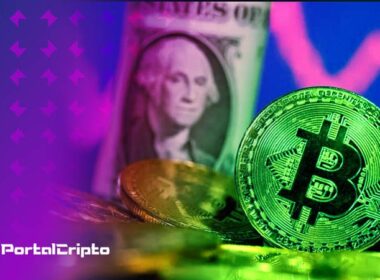List with the biggest Bitcoin holders
Companies, institutions, banks, funds, stocks, governments and people who make Bitcoin Holds in 2023. List sorted by portfolio volume.
What is Bitcoin HODL?
The term “HODL” is often used in the Bitcoin investment community. It's a “wait” spelling error, with an interesting story behind it. The term has also spread to communities of other cryptocurrencies. It is not only a popular term, it is also considered an investment strategy.
The story of “HODL” Bitcoin
The word “HODL” originated from a post on the Bitcoin Forum, a platform where investors can share their opinions about Bitcoin and the economy. On December 18, 2013, a forum member with the nickname “GameKyuubi” wrote a post titled “I AM HODLING”, as “HODLING” is a misspelling of “HOLDING”.
2013 was a big year for Bitcoin. The price rose from $15 in January of this year to over $1.100 in early December, which generated a return of 7.230%. With a high volatility nature, the price dropped from $716 by 39% to $438 in mid-December.
The drop was possibly the result of a ban on third-party payment companies from working with Bitcoin exchanges from the central bank of China (People's Bank of China). The post “I AM HODLING” is a response to falling prices. The author loaded the post with typos and capital letters to express his firmness in his simple retention strategy.
The incorrect term “HODL” quickly circulated on the forum and spread to other cryptocurrencies. Cryptocurrency investors use the term to refer to buying and holding assets over a longer time horizon, rather than making frequent trades.
It has been demonstrated that the author of the post made the right decision. O Bitcoin price started another rise in mid-2017 and reached an all-time high of $19.167 by the end of the year. However, the price dropped again after the 2017 surge; rose again during the COVID-19 pandemic and reached a new high of over $58.000 in early 2021.
Why cryptocurrencies and “HODL”?
Cryptocurrency is a type of digital currency compatible with technology blockchain . It works as a medium of exchange and can also be held as an asset or investment. Examples of cryptocurrencies include Bitcoin, Ethereum, Ripple, etc. Decentralization is the main feature and advantage of cryptocurrency as it is not issued by a central authority such as a country's central bank.
Cryptocurrencies continue to gain more attention as an investment opportunity due to notable disruptions in 2017 and 2020. The trend towards financial decentralization and digitization of currency makes room for the growth of cryptocurrencies. In the context of low post-COVID interest rates with expected inflation, investors also hold cryptocurrencies as a store of value.
“Hodling” refers to the buy and hold strategy. Investors who buy and hold tend to hold their assets for a long period of time to profit from long-term appreciation in value. In contrast, traders are much more active in transactions and look for returns by buying at low prices and selling at high prices.
Due to their highly volatile nature, cryptocurrencies offer great opportunities for traders to accumulate long and short positions frequently. However, hodling can provide investors with more security as they are not exposed to short-term volatility and can avoid the risk of buying high but selling low.
“HODLING” risks in the cryptocurrency market
Despite the recent high rate of return and reasons to invest as mentioned above, prudent investors must also reckon with the risks of holding cryptocurrencies. Cryptocurrency prices are very volatile. Investors may experience extreme ups and downs in their asset values, which means they must have much greater risk appetites than investors in conventional investment instruments. They must have sufficient capital capacity to avoid forced sales or meet unexpected liquidity needs.
With a relatively short history compared to other types of assets and fiat currencies, cryptocurrencies face a future with many unknowns. The cryptocurrency policy has not been well established. Without the oversight of a central authority, cryptocurrencies can be used for fraudulent activities such as illegal transactions and money laundering .
Different countries and parties express different attitudes towards the use of cryptocurrencies. This can significantly undermine their role in supporting international transactions, affecting the value of cryptocurrencies. Unfavorable policy-making and public outlook can reduce asset value in the long run.





